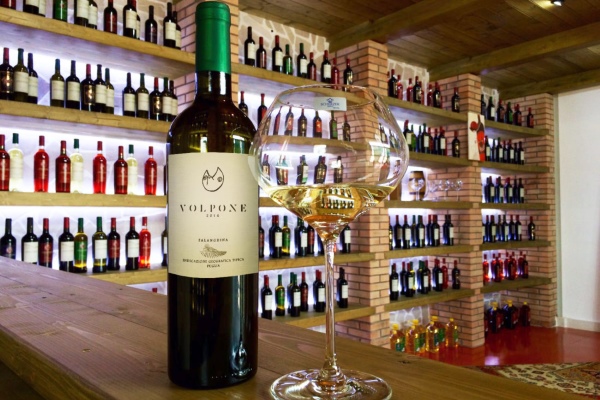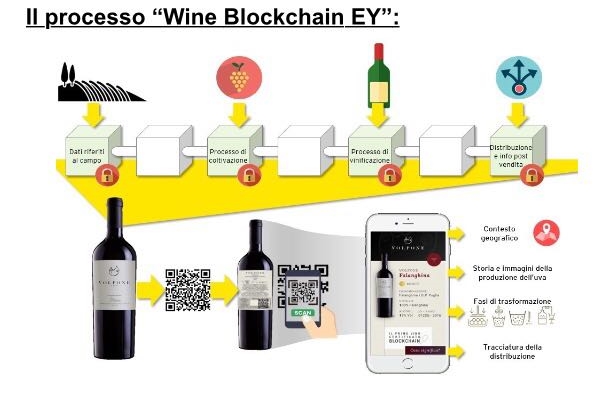
Business advisory firm EY has developed a blockchain-based traceability and authentication system for wines with the help of Italian tech start-up EZLab.
The technology – dubbed Wine Blockchain EY – has been developed as part of EZLab's AgriOpenData cloud-hosted farm management software platform. It will store records with details about the wine's cultivation, supply chain and geographical origin, and allow customers to access those details by scanning a QR code on the bottle with their smartphone (see image below).

The first wine to be tracked and certified using the platform – which is based on the Ethereum blockchain platform produced by the Swiss non-profit Ethereum Foundation – was a Falanghina wine produced by Cantina Volpone.
It is estimated that the Italian wine industry lost an estimated €2m a year to counterfeiting in 2015. Aside from the impact on the producers and loss of tax revenues for governments, the falsified wines can expose consumers to health and safety risks.
Blockchain is the distributed ledger technology underpinning virtual currency Bitcoin, and interest in growing in using it to track the provenance of goods as they move through the global supply chain. Rather than relying on a paper trail or traditional electronic systems, blockchain-based record-keeping produces a permanent chain of ownership and records that is extremely difficult to alter.
"It is basically a database that contains a public ledger of all transactions carried out among users since its creation," explains EZLab in documentation describing the new system. "The database is shared among all users, without intermediaries, so each participant can check the validity of the transaction chain." Once the information captured in each transaction is agreed upon by all members of the business network, it becomes a permanent record.
"The AgriOpenData blockchain aims to be a transparent certification solution of authentic agricultural products, which reinforces the relationship of trust between the consumer and the entire food production chain," it continues.
There is enormous hype about the use of blockchain for supply chain security and traceability – with start-ups such as Everledger and Chronicled extolling the virtues of the technology for authenticating products, and big players like IBM throwing their weight behind enterprise-level platforms.
That said, some industry observers suggest that established supply chains can be slow to adopt and integrate new technologies, and there is a lack of experience within even large corporations in dealing with not only the technical aspects of distributed systems but also the legal framework in which they operate.
Food traceability is however seen as potentially an early application for blockchain and last October, Walmart, IBM and Tsinghua University signed an agreement to explore food supply chain security using the technology. The goal is to improve the way food is tracked, transported and sold to consumers across China
When applied to the food supply chain, digital information such as the original farm or producer, batch numbers, factory and processing data, expiration dates, storage temperatures and shipping detail can be digitally connected to food items and the information entered into the blockchain at each step of the process, according to IBM.
"The record created by the blockchain can also help retailers better manage the shelf-life of products in individual stores, and further strengthen safeguards related to food authenticity," it said at the time the deal was announced.
©
SecuringIndustry.com






